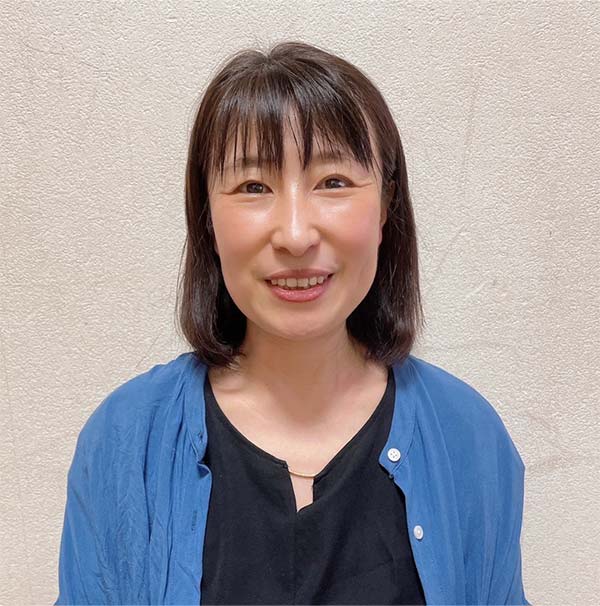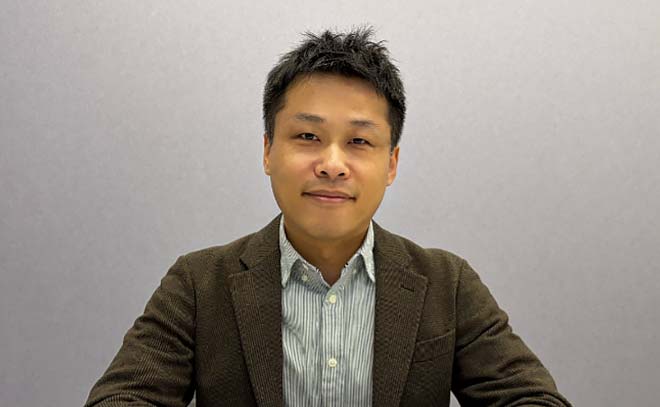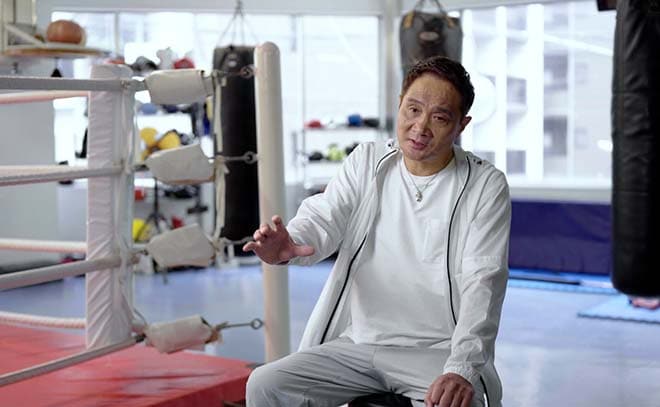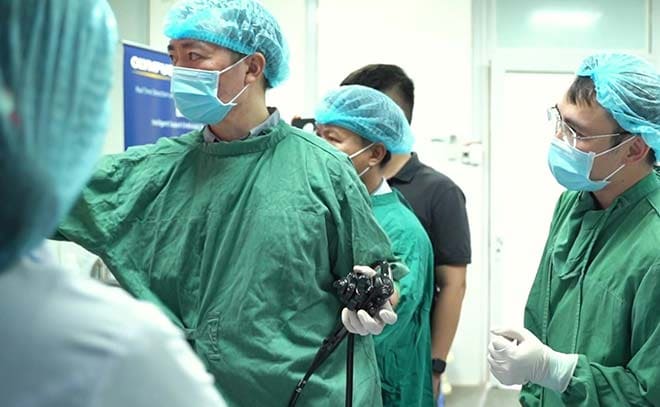With her life settling down after getting her daughter through university entrance examinations, Ms. Okada went for her routine medical checkup in 2019. As she hadn’t undergone tests for gynecological diseases for some time, she originally just wanted to make sure she was clear of breast or uterine cancer at her checkup. There, they found blood found in her stool, and she was told to undergo further testing. “I tend not to have good bowel movements, so I thought this may have been the reason for the bleeding, but never imagined that there was a problem with my colon (large intestine),” says Ms. Okada.
The importance of early detection that has an impact on our quality of life after treatment
Working as a healthcare professional and mother of two, Ms. Okada was diagnosed with colon cancer when she was 45. With no family history of colon cancer, and taking pride in her health in general, the diagnosis was a total surprise to her. We interviewed Ms. Okada about how she got diagnosed, her experience with cancer, her experiences in testing and treatment, and what was going through her mind as she fought to overcome the disease.
Discovery of fecal blood at medical checkup

Going for a colonoscopy with her family’s encouragement
At first, Ms. Okada was reluctant to go to the hospital for further testing, as it was the start of the Covid-19 pandemic, plus she was hesitant to undergo endoscopic testing. However, with encouragement from her family, she decided to undergo a colonoscopy. While she said it was a bit of a struggle to consume the laxative to clean out her intestines prior to the testing, the test itself seemed to be over more quickly and with less pain than she originally feared as she was put under a sedative. The test results lead her to be diagnosed with colorectal cancer.
A panicked search for information
Shocked by her diagnosis, Ms. Okada searched endlessly for information about her cancer on the internet and eventually became increasingly anxious and panicked. She states, “I knew every cancer patient’s situation was different, but I couldn’t stop searching for information on my smartphone, trying to compare my case with others’, and fluctuating between hope and fear. My daughter, who was attending nursing college at the time, gave me a medical journal, which allowed me to access objective information, and after several meetings with the doctor, I was finally able to calm down.”
The day of the surgery
Ms. Okada’s colorectal cancer was an early cancer that had the possibility of penetrating the intrinsic muscular layer, and after consulting with her doctor, it was decided that she would undergo laparoscopic surgery under general anesthetic. Although the date of the surgery was confirmed, it was during the COVID-19 pandemic, when many surgeries were being postponed. Ms. Okada was anxious with uncertainty until the day of her surgery. Fortunately, the operation could go ahead as scheduled. After her three-hour surgery, she had a bit of pain and discomfort from not being able to turn in bed due to the insertion of a drain, a tube that helps remove blood or leachate that accumulates in the body, but otherwise, her recovery went smoothly, and she was released from the hospital after about 10 days. The result of the pathological examination, which came a few weeks after she was released from the hospital, showed that the cancer had not spread to the lymph nodes. Her final diagnosis was submucosal cancer which had not penetrated the intrinsic muscular layer. Since then, she has been going in for periodical testing to follow up on her progress, but so far, there has not been any need for further treatment.
After returning to daily life, reflecting on the importance of “early detection”
Now 3 years after her surgery, Ms. Okada is healthy and her life is back to normal. She appreciates the small things in life, which she said she had taken for granted in the past. She says, “Thanks to the early detection of my disease, I was able to maintain the quality of life that I had before my surgery. I am glad that I went for my medical checkup and colonoscopy back then.” Ms. Okada willingly took this opportunity to speak about her experience in the hopes that sharing her experience as a cancer patient and the uncertainties that she went through can help others. Through her story, she communicated the importance of early detection and early treatment, and that they have a big impact on our quality of life after the treatment.
※ The conditions, feelings and treatment of each patient may vary from person to person. Please consult your doctor for your diagnosis and treatment.




